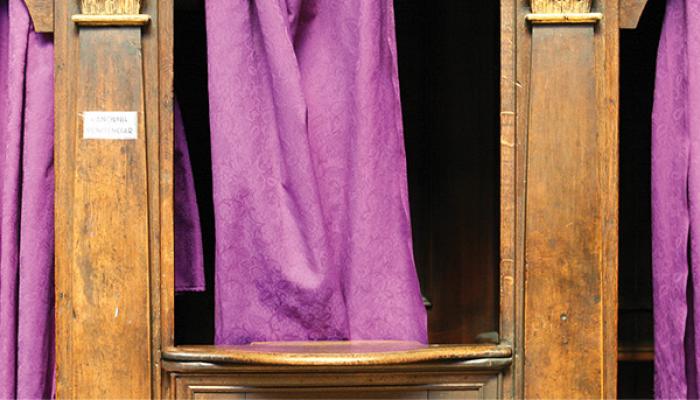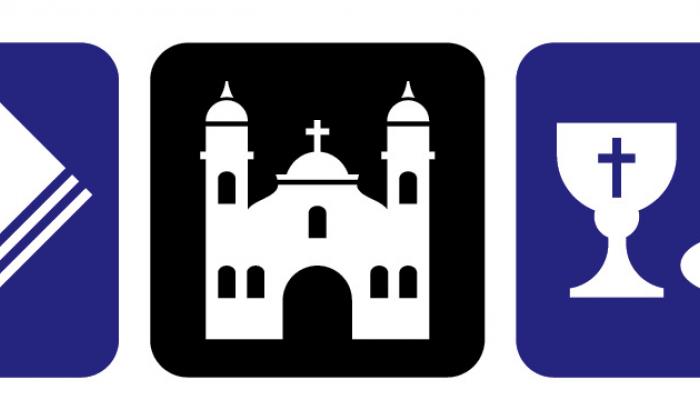
3.37 Чи з конфірмацією Святий Дух сходить на нас вдруге?
У момент хрещення людина «народжується» як християнин. Він або вона негайно приймає Святого Духа. Перед Конфірмацією (Миропомазанням) люди, які були охрещені в дитинстві, можуть поновити обіцянки, які їхні батьки дали від їхнього імені під час хрещення.
Людина, яка хрестилась дорослою, зазвичай отримує миропомазання відразу після хрещення. Таїнство Конфірмації утверджує (конфірмує) і підтверджує присутність Святого Духа.
Why is this sacrament called Chrismation or Confirmation?
It is called Chrismation (in the Eastern Churches: Anointing with holy myron or chrism) because the essential rite of the sacrament is anointing with chrism. It is called Confirmation because it confirms and strengthens baptismal grace. [CCCC 266]
What is the essential rite of Confirmation?
The essential rite of Confirmation is the anointing with Sacred Chrism (oil mixed with balsam and consecrated by the bishop), which is done by the laying on of the hand of the minister who pronounces the sacramental words proper to the rite. In the West this anointing is done on the forehead of the baptized with the words, “Be sealed with the gift of the Holy Spirit”. In the Eastern Churches of the Byzantine rite this anointing is also done on other parts of the body with the words, “The seal of the gift of the Holy Spirit”. [CCCC 267]
What is Confirmation?
Confirmation is the sacrament that completes Baptism; in it the gift of the Holy Spirit is bestowed upon us. Anyone who freely decides to live a life as God’s child and asks for God’s Spirit under the signs of the imposition of hands and anointing with chrism receives the strength to witness to God’s love and might in word and deed. He is now a fullfledged, responsible member of the Catholic Church.
When a coach sends a soccer player onto the playing field, he puts his hand on his shoulder and gives him final instructions. We can understand Confirmation in a similar way. A hand is placed upon us. We step out onto the field of life. Through the Holy Spirit we know what we have to do and we have been given the power to do it. He has motivated us. His mission resounds in our ears. We sense his help. We will not betray his trust or disappoint him; we will win the game for him. We just have to want to do it and listen to him. [Youcat 203]
What does Sacred Scripture say about the sacrament of Confirmation?
In the Old Testament, the People of God expected the outpouring of the Holy Spirit upon the Messiah. Jesus lived his life in a special Spirit of love and of perfect unity with his Father in heaven. This Spirit of Jesus was the “Holy Spirit” for whom the people of Israel longed; this was the same Spirit whom Jesus promised to his disciples, the same Spirit who descended upon the disciples fifty days after Easter, on the feast of Pentecost. And it is again this same Holy Spirit of Jesus who descends upon everyone who receives the sacrament of Confirmation.
In the Acts of the Apostles, which were written a few decades after the death of Jesus, we see Peter and John traveling about to confirm new Christians by imposing hands on those who previously “had only been baptized in the name of the lord Jesus”, so that their hearts might be filled with the Holy Spirit. [Youcat 204]
What happens in Confirmation?
In confirmation the soul of a baptized Christian is imprinted with a permanent seal that can be received only once and marks this individual forever as a Christian. The gift of the Holy Spirit is the strength from above in which this individual puts the grace of his Baptism into practice through his life and acts as a “witness” for Christ.
To be confirmed means to make a “covenant” with God. The confirmand says, “Yes, I believe in you, my God; give me your Holy Spirit, so that I might belong entirely to you and never be separated from you and may witness to you throughout my whole life, body and soul, in my words and deeds, on good days and bad.” And God says,“Yes, I believe in you, too, my child—and I will give you my spirit, my very self. I will belong entirely to you. I will never separate myself from you, in this life or eternally in the next. I will be in your body and your soul, in your words and deeds. Even if you forget me, I will still be there—on good days and bad”. [Youcat 205]
Who can be confirmed, and what is required of a candidate for Confirmation?
Any Catholic Christian who has received the sacrament of Baptism and is in the “state of grace” can be admitted to Confirmation.
To be “in the state of grace” means not to have committed any serious sin (mortal sin). By a serious sin a person separates himself from God and can be reconciled with God ly by making a good confession. A (young) Christian who is preparing for Confirmation finds himself in one of the most important phases of his life. He will do everything possible to grasp the faith with his heart and his understanding; he will pray alone and with others for the Holy Spirit; he will reconcile himself in every way with himself, with the people around him, and with God. Confession is part of this, since it brings one closer to God even if one has not committed a mortal sin. [Youcat 206]
Це святе миро більше не є простим миром... але це дар благодаті Христа, і завдяки сходженню Святого Духа воно придатне для передачі Його божественної природи. Це миро символічно нанесене на чоло та інші органи чуття; і поки тіло твоє помазано видимим миром, душа твоя освячена Святим і животворящим Духом. [св. Кирило Єрусалимський, Катехизи, 21, 3 (MG 33, 1089)]





